06-12-2020
By SJA Jafri + Bureau Report + Agencies
JERUSALEM/ RIYADH/ ISLAMABAD: Saudi Arabia Foreign Minister Prince Faisal bin Farhan said his country remains open to fully normalizing ties with Israel and joining the Abraham Accords, telling the International 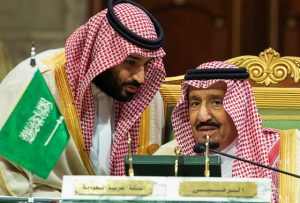 Institute for Strategic Studies’ Manama Dialogue Conference over the weekend in Bahrain that it was critically important to get Palestinians and Israelis back to the negotiating table that will deliver a Palestinian state within the “lines that are globally understood to eventually constitute” one.
Institute for Strategic Studies’ Manama Dialogue Conference over the weekend in Bahrain that it was critically important to get Palestinians and Israelis back to the negotiating table that will deliver a Palestinian state within the “lines that are globally understood to eventually constitute” one.
Farhan says that Palestinian statehood would deliver peace while noting that both the 1982 King Fahd peace initiative in Fez, Morocco and the 2002 Saudi-led Arab Peace Initiative suggested full normalization in the past with Israel.
“Israel will take its place in the region – but in order for that to happen and for that to be sustainable, we need for the Palestinians to get their state and settle that situation.”
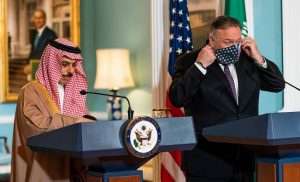 Israel participated openly in the conference for the first time.
Israel participated openly in the conference for the first time.
According to Al Arabiya, the remarks by the foreign minister are part of speculation that Saudi Arabia could follow the United Arab Emirates and Bahrain to join the Abraham Accords.
In November, reports indicated that Prime Minister Benjamin Netanyahu had traveled to Saudi Arabia, although Riyadh denied he met the crown prince. The kingdom is seeking to repair its image in Washington with the incoming administration of President-elect Joe Biden.
It has also hinted that it may be open to some mending of fences with Turkey and Qatar.
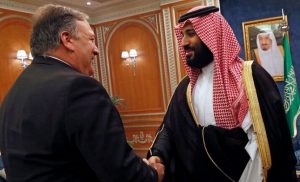 The two countries are allies; Saudi Arabia led other Gulf states to break relations with Doha in 2017. Turkey sent troops to Qatar. Ankara has been openly opposed to Saudi Arabia and Qatar has used its media to try to undermine global support for the Saudis.
The two countries are allies; Saudi Arabia led other Gulf states to break relations with Doha in 2017. Turkey sent troops to Qatar. Ankara has been openly opposed to Saudi Arabia and Qatar has used its media to try to undermine global support for the Saudis.
Recent articles have suggested that Saudi Arabia could normalize ties with Israel; it has opened its airspace to Israeli flights to the UAE. Bahrain’s decision to move forward with ties, following the UAE saying it would normalize relations in August, is widely understood to be supported by Riyadh.
This means Saudi Arabia has supported other countries moving forward and it has become more open to Israel in general.
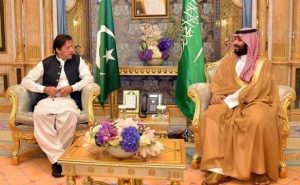 However, the kingdom was the leading player behind the 2002 Arab Peace Initiative, which offers recognition in exchange for Palestinian statehood and Israel’s withdrawal from the West Bank. Riyadh has left open how that Palestinian statehood aspect could emerge with its wording at the Manama Dialogue Conference.
However, the kingdom was the leading player behind the 2002 Arab Peace Initiative, which offers recognition in exchange for Palestinian statehood and Israel’s withdrawal from the West Bank. Riyadh has left open how that Palestinian statehood aspect could emerge with its wording at the Manama Dialogue Conference.
The important meeting in Bahrain brings together voices from across the region and the world, including Afghanistan, India and the US. Secretary of State Mike Pompeo addressed the conference via video. Other important messages from Jordan and Oman also supported peace in the region.
The general message from Manama is about stability in the region, which means toning down threats from Iran and 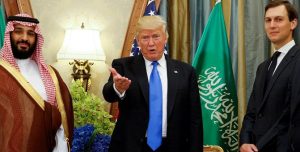 hoping that Turkey will decrease the aggressive role it has taken over the past year.
hoping that Turkey will decrease the aggressive role it has taken over the past year.
The Pakistani prime minister made headlines last week when he revealed that Islamabad has been under pressure from some “friendly” nations to recognize Israel.
Although he stopped short of naming them despite being repeatedly asked whether they were Muslim or non-Muslim countries, many believe Imran Khan was referring to Saudi Arabia and the United Arab Emirates.
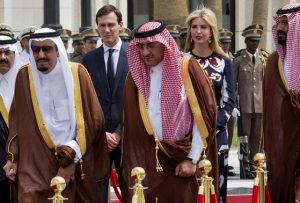 “Leave this (question). There are things we cannot say. We have good relations with them,” Khan told the interviewer.
“Leave this (question). There are things we cannot say. We have good relations with them,” Khan told the interviewer.
The UAE and Bahrain recently established diplomatic and economic relations with Israel. Some other Gulf countries, including Saudi Arabia, are also weighing options to normalize relations.
“Let us stand on our own feet in terms of the economy, then you may ask these questions,” Khan further said, referring to Islamabad’s longstanding economic dependence on the oil-rich Gulf states.
Some local and international media took Khan as hinting at the US, Pakistan’s longtime ally in the so-called war against terrorism, a contention quickly rejected by Islamabad.
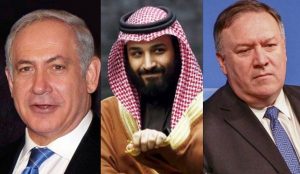 Terming the reports “fabricated,” a spokesperson for the Foreign Ministry said Khan was “misquoted” as there is no such pressure on Islamabad to recognize Tel Aviv.
Terming the reports “fabricated,” a spokesperson for the Foreign Ministry said Khan was “misquoted” as there is no such pressure on Islamabad to recognize Tel Aviv.
Though Khan clearly articulated Pakistan’s position that unless a just settlement of the Palestine issue — satisfactory to Palestinians — was found, Pakistan could not recognize Israel, Islamabad is abuzz with rumors about a possible Saudi role.
While Saudi Arabia has not yet recognized Israel, it is widely believed that the UAE and Bahrain could not have crossed the “red line” without Riyadh’s approval.
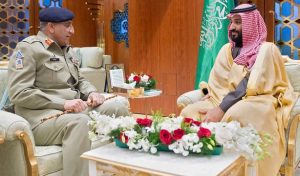 Mohammad Ali Siddiqi, a Karachi-based analyst who often writes on the Middle East, does not eliminate the possibility of Riyadh putting pressure on Islamabad to normalize relations with Tel Aviv.
Mohammad Ali Siddiqi, a Karachi-based analyst who often writes on the Middle East, does not eliminate the possibility of Riyadh putting pressure on Islamabad to normalize relations with Tel Aviv.
“As for Saudi pressure, yes, it cannot be ruled out,” Siddiqi told Anadolu Agency, saying if Pakistan recognizes the Jewish state, credit will go to Riyadh.
“The MBS could be quite calculating,” he said, referring to Saudi Crown Prince Mohammed bin Salman. “If one were to believe what [Turkish President] Recep Tayyip Erdogan said, MBS threatened to expel all Pakistani workers in the kingdom if Imran Khan attended the Kuala Lumpur Summit last December.”
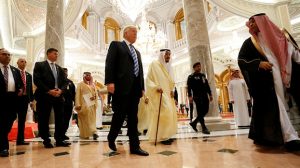 Pakistan refused to attend the summit at the eleventh hour reportedly due to pressure from Saudi Arabia, which saw the forum as an alternative to the Organization of Islamic Cooperation.
Pakistan refused to attend the summit at the eleventh hour reportedly due to pressure from Saudi Arabia, which saw the forum as an alternative to the Organization of Islamic Cooperation.
According to Siddiqi, Pakistani officials, even former officials, however, would not confirm or deny if there is any pressure on Pakistan to recognize Israel but if countries are exerting pressure, is Saudi Arabia among them?
Lt. Gen. (retd.) Talat Masood, an Islamabad-based security analyst, said Riyadh is not persuading Pakistan to recognize Israel.
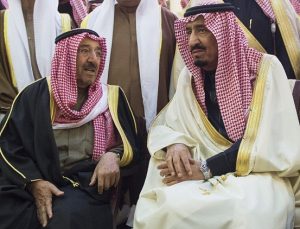 “The Arab states are normalizing their ties with Israel under a narrow approach purely based on political and economic gains at the cost of values. They no longer care much about the Palestine cause,” he told Anadolu Agency.
“The Arab states are normalizing their ties with Israel under a narrow approach purely based on political and economic gains at the cost of values. They no longer care much about the Palestine cause,” he told Anadolu Agency.
“There could be a little Saudi role to woo Pakistan in this regard, but by and large, I don’t think there is any pressure,” said Masood, who served in the Pakistani army till 1990.
Pakistan’s former ambassador to Saudi Arabia Shahid Amin shared a similar opinion. “Why would Saudi Arabia do that… after the Foreign Ministry’s clarification, it should be cleared. Pakistan does not fit in this picture,” he said.
Amin, nonetheless, acknowledged that Abu Dhabi and Manama have normalized ties with Tel Aviv with Riyadh’s consent but, he said, it would be difficult for Riyadh to do so, given the internal and external issues it could face. 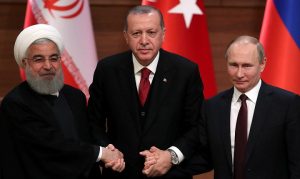 “Saudi Arabia spearheads the Muslim world, its recognition will invite too many problems for itself,” he explained.
“Saudi Arabia spearheads the Muslim world, its recognition will invite too many problems for itself,” he explained.
Echoing Amin’s views, Siddiqi said: “Saudi Arabia commands a unique position in the Islamic fraternity. Its kings call themselves servants of the two holy places [of Mecca and Medina]. For that reason, it cannot afford to shock the Muslim world to take a decision that many Muslims could regard as a betrayal of not just the Palestinian cause but of the Islamic cause.”
Masood, however, said it is just a matter of time that the kingdom follows in the footsteps of UAE and Bahrain, saying that it let both the countries get on with it to test the waters. “This was to prepare the Saudi public to digest the huge move.”
 Pressmediaofindia
Pressmediaofindia




